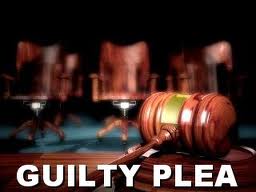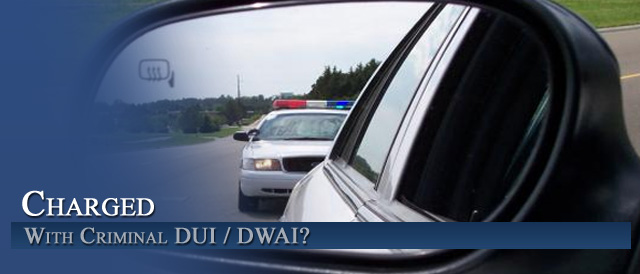
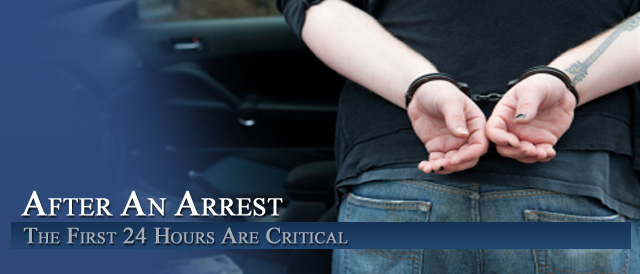

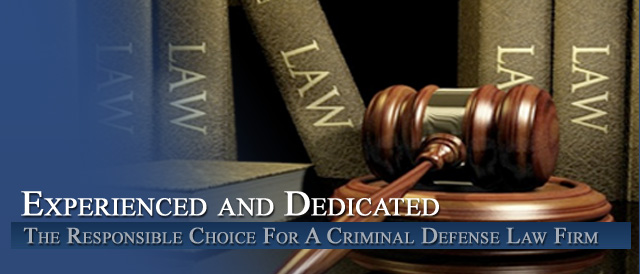
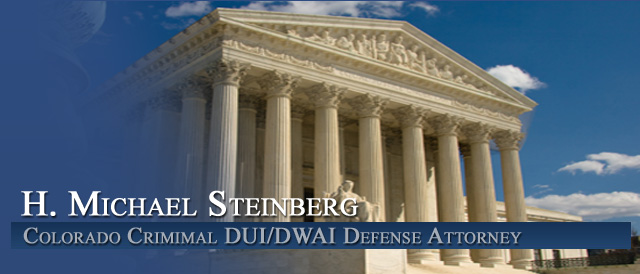
Colorado DUI – DWAI – DUID Cases – No Contest and Other Kinds Of Pleas
By H. Michael Steinberg Colorado DUI -DWAI – DUID Criminal Defense Lawyer – Attorney
Colorado DU I- DWAI – DUID Cases – No Contest and Other Kinds Of Pleas – Understanding the types of plea bargains that can be entered in Colorado DUI cases requires a firm grasp of the kind of pleas the laws allows and the kind of Judge instructed advisements that must be given before a plea can be entered.
This article addresses the nature of that definition and explains its many components.
The Types Of Pleas That Can Be Entered In Colorado DUI Cases
Two laws –C.R.S. � 16-7-205 and Crim. P. Rule 11(a) provide the kind of pleas that can be entered. Those pleas are:
1. guilty,
2. not guilty,
3. nolo contendere (no contest),
and
4. not guilty by reason of insanity.
Pleas are admissions to all the elements of a formal criminal charge. Just like the verdict of a jury, they are conclusive. A judge – after a plea is entered – must then enter judgment and impose the sentence.
A guilty plea consents to a judgment of conviction and sentence is then imposed upon him or her. When you plead guilty you “waive” your right to a trial before a judge or a jury, and many of the rights granted to a defendant by the Constitution of the United States.
When you plead guilty you “waive” these rights
- your privilege against compulsory self-incrimination,
- the right to a trial by jury,
- the right to confront accusers,
- the right to present witnesses at trial on the your behalf,
- the right to contest the factual basis for the charge,
- the right to insist that the prosecution establish guilt beyond a reasonable doubt,
- the right to a speedy trial,
- the right to contest an allegedly illegal search,
- the right to contest an allegedly illegal arrest,
- the right to object to an allegedly improperly obtained confession,
- the right to object to an allegedly improper identification procedure,
- the right to claim protection of a statute of limitations,
- the right to demand a change of venue,
- the right to assert substantive defenses,
- and your plea necessarily admits beyond a reasonable doubt the elements of the charge.
Before A Plea Can Be Accepted By A Judge – Statutory And Constitutional Rights Must Be Followed
The federal and state constitutions, along with Colorado Rule of Procedure Rule 11(b), require that at the time a plea of guilty or no contest is made, the court:
1. must be sure the defendant understands the effect of his or her plea,
2. the rights he or she is giving up, the possible sentence,
3. and that the defendant is entering the plea knowingly, intelligently, and voluntarily.
Colorado DUI- DWAI – DUID Cases – No Contest and Other Kinds Of Pleas In Colorado DUI Cases – Colorado Nolo Contendere Or “No Contest” Pleas
A “Nolo Contendere” or “I will not contest it, ” plea is known as a “no contest” plea. It can only be made with the consent of the judge and is left to that judges broad discretion.
A no contest plea has the same impact as a guilty plea for all practical purposes. The plea iteself neither admits or denies a charge – sentencing however -remains the same.
A judge can accept a ” no contest plea” even if the plea agreement is to a deferred judgement and sentence under C.R.S. � 18-1.3-102.
Judge’s Rarely Accept Nolo Contendere or No Contest Pleas
Judges are reluctant to accept a “no contest” plea unless there is a good and clear reason for it. Judges do not like “no contest” plea because they may be an indication that the defendant is not taking responsibility for his or her actions. In DUI cases especially – taking responsibility is important for the successful completion in the effort to address an alcohol problem.
Here is a legal description of a no contest plea
“An individual accused of a crime may voluntarily, knowingly, and understandingly plead guilty and consent to the imposition of a sentence even if the individual is unwilling or unable to admit his or her participation in the acts constituting the crime, or even if his or her guilty plea contains a protestation of innocence, when the individual intelligently concludes that his or her interests require a guilty plea and the record strongly evidences the individual’s guilt”. North Carolina v. Alford, 400 U.S. 25 (1970)
Before this kind of “Alford plea” can be accepted – the following issues are typically covered by the judge:
• A detailed explanation of the evidence against the defendant;
• The dispute the defendant has with the facts alleged by the prosecutor;
• Detail as to the dispute to ascertain whether there is strong evidence of guilt;
• The defendant’s discussions with counsel regarding the entry of the plea;
• The age and education of the defendant;
• Other relevant factors, such as discussions by the defendant with family;
• The defendant’s explanation of why he or she is entering this plea if innocent;
• The defendant’s admission that there is sufficient evidence to support a verdict of guilty;
and
• The fact that at sentencing the judge will treat this matter as any other guilty plea.
The Judge Then Makes The Following Findings:
• That the defendant’s reasons for entering the plea are logical;
• That the facts as stated in the record strongly evidence guilt;
• That the defendant has intelligently concluded that his or her interests require a guilty plea;
• That the defendant’s attorney is competent;
and
• That the defendant has voluntarily, intelligently, and knowingly entered the plea.
The Problem Of Meeting The Conditions Of DUI Probation Following A No Contest Plea
If a defendant denies factual guilt at the plea advisement hearing – he or she may run afoul of probation with the mandatory alcohol treatment that follows the sentencing. Somewhat like domestic violence cases and sex offender cases – alcohol based crimes such as DUI require the successful completion of certain specific types of treatment.
Before A Plea Of Guilty Is Constitutional – It Must Be “Knowing, Intelligent, And Voluntary” Plea
Five factors bearing on the issue of whether a plea is voluntarily and intelligently made are:
• The defendant must be competent at the time he or she pleads guilty.
• The defendant must understand the nature of the charge against him or her.
• The defendant must understand the consequences of pleading guilty, including the waiver of rights and the possible penalties that could be imposed.
• Defense counsel must be present, unless the defendant waives the right to counsel; and
• Defense counsel must be both effective and competent.
A judge need NOT advise you of EVERY constitutional or statutory right to which you are entitled – or rights that could impact you in other phases of your life – sometimes called “collateral impacts.” The judge need only advise you of the rights set forth in Crim. P. 5(a)(2) and 11(b).
Colorado DUI – DWAI – DUID Cases – No Contest and Other Kinds Of Pleas – The “Knowing, Intelligent, And Voluntary” Plea
Among the most important “findings” a judge must make in accepting a plea is that the plea is made “voluntarily, knowingly, and intentionally.” The court record must show – before a guilty plea can be accepted – that the plea”voluntarily and intelligently” given.
“Knowingly” means that the person waiving the right must “know” of the existence of the right and any other information legally relevant to the making of an informed decision either to exercise or relinquish that right.
“Intentionally” and “intelligently,” means that is the person waiving that right must be fully aware of what he is doing and must make a conscious, informed choice to relinquish the known right.
A conscious choice is made “voluntarily,” when it is not coerced by the state – either physically or psychologically.
A person cannot give up his or her constitutional rights unless the that person “has full knowledge of the consequences of his or her guilty plea.”
Voluntariness is “satisfied” when the record as a whole “affirmatively demonstrates” that the defendant understood the constitutional rights he or she was waiving and the critical elements of the crime to which the plea was tendered.”
Colorado DUI- DWAI – DUID Cases – No Contest and Other Kinds Of Pleas In Colorado DUI Cases – Summary
Crim. P. 11, the Colorado advisement law – requires two basic and fundamental elements:
(1) knowledge,
and
(2) voluntariness:
1) “Knowledge” of:
a) One’s constitutional and statutory rights;
b) The nature and elements of the offense;
c) The possible penalties and places of incarceration; and
d) The legal effect of a plea.
2) “Voluntariness” of:
a) The waiver of the defendant’s constitutional rights; and
b) The plea.
The accused may enter three different pleas in response to Colorado criminal charges filed against him or her. The first is the Guilty plea – this plea accepts guilt for the charges against him and accepts the appropriate punishments.
The second type of plea a defendant may choose to enter is the NOT GUILTY. By entering a not guilty plea, the defendant denies the Colorado criminal charges against him.
The Third Type of plea is the NOLO CONTENDERE OR NO CONTEST PLEA. In this plea – the defendant neither admits nor acknowledges guilt for the accusations against him…
What If I Was Under The Influence of Alcohol Or Drugs During The Entry Of My Plea?
The Requirement Of Competency
An advisement hearing – sometimes called a ” providency hearing” is intended to assess a defendant’s state of mind when tendering a guilty plea.
Judges are trained to make certain that – if there is any question about a defendant’s mental capacity to understand the nature and effect of such a plea – to reject that plea. But know this – the law “presumes” that a defendant is competent and the defendant must prove they are incompetent and unable to enter the plea..
An effective criminal defense lawyer is duty bound to make certain a judge is aware of any substance related or mental health issues. The judge must make sure that the defendant clearly, voluntarily, and knowingly entered the guilty plea.
If, on the other hand, a defendant demonstrates that he or she was under the influence of drugs or alcohol at the time of the of guilty, to the extent that the guilty plea was not a free and voluntary act, that defendant should be entitled to withdraw that plea and go to trial on a plea of not guilty. This is especially true where that defendant has a valid defense to the charges.
But NOTE – a person can be “affected by alcohol or drugs” and still be found to have the mental capacity to function to the point where that person can enter a valid or legal guilty plea.
Colorado DU I- DWAI – DUID Cases – No Contest and Other Kinds Of Pleas
Denver Colorado DUI -DWAI – DUID Criminal Defense Lawyer
ABOUT THE AUTHOR : H. Michael Steinberg – Email The Author – [email protected] or call his office at 303-627-7777 during business hours – or call his cell if you cannot wait and need his immediate assistance – 720-227-7777.
If you are charged with A Colorado crime or you have questions about Colorado DUI – DWAI – DUID Cases – No Contest and Other Kinds Of Pleas In Colorado DUI Cases – please call our office. The Law Offices of H. Michael Steinberg, in Denver, Colorado, provide criminal defense clients with effective, efficient, intelligent and strong legal advocacy. We can educate you and help you navigate the stressful and complex legal process related to your criminal defense issue.
H. Michael Steinberg, is a Denver, Colorado criminal defense lawyer with over 40 years of day to day courtroom experience – specializing in Colorado Criminal Law along the Front Range. He will provide you with a free initial case consultation to evaluate your legal issues and to answer your questions with an honest assessment of your options. Remember, it costs NOTHING to discuss your case. Call now for an immediate free phone consultation.
Helping Clients To Make Informed Decisions In the Defense of Colorado Criminal Cases.
Contact A Lawyer with Three Decades of Experience as a Denver Criminal Attorney at The Steinberg Colorado Criminal Defense Law Firm Today.
Colorado Defense Lawyer H. Michael Steinberg provides solid criminal defense for clients throughout the Front Range of Colorado – including the City and County courts of Adams County, Arapahoe County, City and County of Boulder, City and County of Broomfield, City and County of Denver, Douglas County, El Paso County – Colorado Springs, Gilpin County, Jefferson County, Larimer County, and Weld County,…. and all the other cities and counties of Colorado along the I-25 Corridor… on cases involving … Colorado DUI – DWAI – DUID Cases – No Contest and Other Kinds Of Pleas In Colorado DUI Cases.
Other Articles of Interest:
- Meeting With Your Colorado DUI-DWAI-DUID Lawyer For The First Time
- Attacking Your Colorado DUI – DWAI Case – Common Tactical Approaches
- A Guide To The DMV Side Of Colorado DUI Cases Part I Of IV
- Understanding The Colorado Law Of Careless Driving 42-4-1402 – Bodily Injury Or Death
- Expungement – Sealing DUI Charges In Colorado – Traffic Charges Such As DUI – DWAI’s Can Never Be Sealed or Expunged




